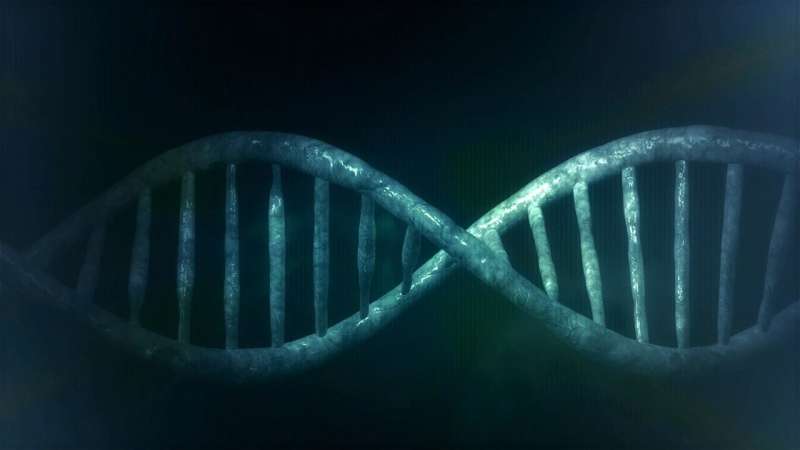This article has been reviewed according to Science X's editorial process and policies. Editors have highlighted the following attributes while ensuring the content's credibility:
fact-checked
trusted source
proofread
New genetic risks for colon cancer uncovered in study

Researchers at Vanderbilt-Ingram Cancer Center have found new genes that put people at higher risk for colon cancer and rectal cancer.
The researchers conducted a large transcriptomic-wide association study (TWAS), along with an alternative approach called splicing-TWAS, to strengthen gene discovery. They discovered oncogenic roles for two previously unreported genes, TRPSI and METRNL, and they confirmed cancer susceptibility with another recently reported gene, C14orfl66. The findings were published online Aug. 23 in JNCI: Journal of the National Cancer Institute.
"To identify novel susceptibility genes for colorectal cancer, ongoing efforts are necessary. In our study, we utilized new large RNA-seq data and employed the TWAS approach along with splicing-TWAS to enhance novel gene discovery. By combining these population-based analyses with functional investigations, we can gain further insights into the biological mechanisms responsible for colorectal cancer development, which could aid in the translation of genetic findings for the prevention and treatment of this prevalent malignancy," said the study's senior author, Xingyi Guo, Ph.D., associate professor of Medicine and of Biomedical Informatics.
Although more than 200 common genetic variants have been found to be associated with colorectal cancer through genome-wide association studies (GWAS), the target genes and the underlying biological mechanisms for the vast majority of these risk loci remain unclear. The GWAS-identified risk variants explain only about half of the heritability of colorectal cancer. TWAS studies can further pinpoint susceptibility. The alternative approach the researchers utilized, splicing-TWAS, remains largely unexplored for colorectal cancer.
The researchers performed RNA-sequencing in normal colon tissues and incorporated genotyping data from 423 European descendants to build genetic prediction models of gene expression and alternative splicing.
In total, the researchers identified 57 genes associated with colorectal cancer risk after combining findings from the TWAS and splicing-TWAS studies. Sixteen of them had not been reported in GWAS studies.
The research is believed to be the first large study to use a TWAS approach to systematically explore associations of genetically predicted alternative splicing with colorectal cancer risk. Future TWAS analyses utilizing these advanced approaches are likely to reveal additional significant genes for cancer risk, the researchers said in the study. They noted that a limitation of the study is that it was limited to European ancestry and that further investigations are needed to assess the relevance of these genes in non-European populations.
More information: Zhishan Chen et al, Novel insights into genetic susceptibility for colorectal cancer from transcriptome-wide association and functional investigation, JNCI: Journal of the National Cancer Institute (2023). DOI: 10.1093/jnci/djad178


















